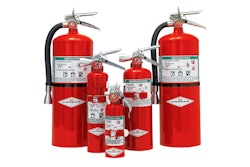BOULDER, Colo. (AP) — In 1976, the city of Boulder took one look at a rough, young upstart recycling outfit known as Eco-Cycle and turned down its $5,000 funding request.
Forty years later, few organizations can claim to be as closely tied to the city and county and their images as national leaders of sustainability, reported the Daily Camera (http://bit.ly/2dbRD4C).
The nonprofit runs the county's recycling facility, processing 52,000 tons of material a year; it collects recyclables and compost from nearly every city in the county; its executive director, Suzanne Jones, is Boulder's mayor.
So it's hard to believe that the '76 city council, the first time a funding measure for Eco-Cycle came before them, voted it down 5-4.
"In the early days, they had very mixed feelings about supporting us," said co-founder Pete Grogan. "The whole concept was unknown to them and perceived as being somewhat risky."
On a second reading though, with "hundreds" of supporters in attendance, the council unanimously passed a resolution to grant Eco-Cycle $5,000, Grogan said.
Eco-Cycle has enjoyed near ubiquitous public and municipal support ever since. Through aggressive mobilization by its supporters, it has weathered ups and downs in the global commodities markets and persevered through declining revenues to mark 40 years in the business of turning garbage into greenbacks.
Buses and Boy Scouts
It was community demand that birthed Eco-Cycle. Originally intended as a temporary fundraiser for youth nonprofit Attention Homes, Grogan and others began collecting recyclables from Boulder residents in 1976.
"We decided to put together a couple-month recycling program to raise funding to buy recreational equipment," recalled Grogan, who at the time was studying psychology at the University of Colorado. "It was successful: We bought the equipment and I assumed my career in recycling was done."
But it wasn't. Residents, wondering why the pickup had ceased, kept calling in, asking Grogan to resume his services. It was at that point, he said, he realized recycling could be a full-time job.
Grogan teamed up with Roy Young, a recent transplant to Boulder from Cleveland, where he had been attending graduate school. Young had experience starting recycling programs: one in North Carolina during his undergraduate career and another at university in Cleveland.
"I moved to Boulder expressly to start a recycling program, called Ecological Recycling," Young said. A local woman, Sally Martin of the League of Women Voters, directed him to Grogan and another volunteer, Mary Wolff.
Together, they established a drop-off center at Spruce and 28th streets. The money made from the sale of processed materials — glass and aluminum to Coors; paper to be made into insulation; tin cans for use in copper mining — was used to fund curb-side pickup, via repurposed school buses, one of the earliest such programs in the nation.
As a nascent nonprofit, Eco-Cycle couldn't afford to hire trucks and drivers. Instead, it turned to community organizations: 4-H clubs, Girl Scouts and Boy Scouts, as well as convicted drunk drivers doing community service hours.
"We couldn't afford labor," Grogan said. "Piece-mealing our pickup services and sorting through various groups, that's how we made it work in those early years."
Eventually, the work Eco-Cycle was doing caught the attention of the Environmental Protection Agency, which offered the organization a $70,000 grant to train and employ community members.
The catch was getting $5,000 pledged from both the city of Boulder and Boulder County. The county agreed to pony up — on the condition that the city did, too. That led to a city council hearing and an initial 5-4 "no" vote, changed to a unanimous "yes" on the second reading, in the face of overwhelming community support.
"Hundreds of people showed up," Grogan said. "It spoke to the power of the people."
Though the public support has been consistent since the beginning, Grogan said garnering the favor of local government took some time.
"That's changed dramatically. When you look at where we are today, with the mayor of Boulder being Eco-Cycle's executive director, it's hard to believe they ever voted against us."
Zero Waste
Jones took over from longtime director Eric Lombardi in 2014, but it was a post she nearly declined.
"I almost didn't take this job, because I wanted to work on climate change," said Jones, who had a decade-plus of experience in environmental and wildlife advocacy. "It wasn't until the connection between climate change and zero waste was made to me that I saw this as an opportunity to really make headway in reducing greenhouse gas emissions."
But her work there hasn't been without controversy, including a conflict-of-interest complaint filed recently by a county resident concerned about Elise Jones' role on the county commission. The county is a major funder of Eco-Cyle and the two are twin sisters.
Eco-Cycle had grown considerably by the time Jones came around. Aside from a well-established program in Boulder, it added drop off centers in Longmont and Broomfield; opened the Center for Hard to Recycle Materials (CHaRM) in Boulder; established school recycling and zero waste education programs in the Boulder and St. Vrain Valley districts; and had more than a decade of operating the county's material recovering facility (MRF).
In 2005, Boulder County passed a resolution to divert nearly all of the county's waste from landfills by 2025. The City of Boulder passed a similar measure the following year, hoping to divert 85 percent of its waste by '25.
Progress has been slow but steady. Both municipalities are still below 40 percent: the city at 39 percent diversion in 2015, and the county at 35 percent. That's about in line with the national rate, which according to the EPA was 35 percent last year.
"We've made some tremendous progress," said Chaz Miller, director of policy and advocacy for the National Waste and Recycling Association. "Eco-Cycle has done some creative things" to raise the area's diversion rates, from its successful education programs to the opening of the CHaRM, a facility that is still unique among recyclers.
The anticipated volume increase from zero waste initiatives couldn't come at a better time for Eco-Cycle.
In the face of slumping commodities markets, the nonprofit has missed its revenue targets for at least the past decade, losing more than $1 million as the cost to process materials outstrips the price companies will pay for them.
Eco-Cycle expects to break even for fiscal year 2016, and continues to push for new sources of funding to support its many programs.
"We are adapting like all the other haulers are," said Jones, "The recycling processes are recognizing this might be a new normal where — just like you have to pay do deal with trash — there's a recognition that recycling systems aren't free, either.
"It's certainly easier when (commodity) markets are high, but the work is as relevant as other."
Increasingly, that work is being done at higher levels of government. Eco-Cycle has been heavily involved in efforts to increase recycling at the state level.
"Most people are shocked to hear that Colorado's statewide diversion rate is 12 percent; we're one of the worst states in the country," Jones said. "We're rippling out from Boulder County to help other communities along the zero waste path, working to increase funding, to adopt statewide goals and a plan to get there."
Yet to come
The nonprofit is about to get a little help in one of the trickiest areas of recycling from the private sector: Glass.
As one of the least valuable materials to resell after processing, glass has been increasingly dumped in landfills across the country rather than being handled by recyclers. Most municipalities lack the resources to devote to equipment that would better clean the glass, enabling them to fetch higher prices for the end product.
That gap is about to be filled by Salt Lake City-based Momentum Recycling, which is building a 25,000-square-foot processing facility on the edge of Boulder County in Broomfield. The operation will take glass that has been processed by MRFs, clean it and then sell it at a profit for use in new jars and bottles.
Construction on the building is set to wrap in October, with all processes up and running the following month. The positioning near the Denver metro was ideal for Momentum, which will find itself close to both a steady supply of glass and the end buyers.
"With Rocky Mountain Bottling in Wheat Ridge and Budweiser in Windsor, we're pretty well positioned to service either of those bottling plants," said Jeff Callahan, general manager of Momentum's Colorado facility and a former manager with Boulder County's resource conservation division.
"With the very mature recycling programs in Boulder County, single stream collection throughout the Front Range and (glass) that couldn't be cleaned up by the MRFs, we realized it was an unmet need and a perfect opportunity to do what nobody else is doing."
Momentum put $10 million into the Broomfield facility, Callahan said. That's just not feasible for Eco-Cycle, which continues to recycle glass and sell it for either very low prices or pay to haul it away.
"It's unlikely that anywhere on the Front Range we're going to stop recycling glass, so we've solved a significant processing problem," said Callahan. "Ideally it would be great to get glass out" of single stream altogether, and eventually Momentum hopes to recycle all the glass in the state.
Eco-Cycle has also drawn another recycling nonprofit to the area, Blue Star Recyclers. The organization provides jobs for individuals with disabilities by employing them to disassemble and sort electronics for recycling.
Those on the autism spectrum are particularly well suited for the task, according to Andy O'Riley, Blue Star's director of materials management.
"It's very systematic; there's a set procedure how you go about it," he said. "For folks with autism, there seems to be a natural affinity for things with that procedural quality."
Through the CHaRM, Blue Star hopes to provide employment for seven individuals, increasing over time as the amount of material coming in the center grows.
It's those sorts of partnerships that keep Eco-Cycle going, even during the down times, director Jones said.
"The fruit from all these efforts, all that work will pay off in the future," she said. "Our history is synonymous with this community's sustainability path. They're part of our history and we're part of their history."
Spreading that success story — whether it is one of job creation, reducing carbon footprints, or just bringing the community together — is the next phase.
"That's the 40 years yet to come," she said.
___
Information from: Daily Camera, https://www.dailycamera.com/






















